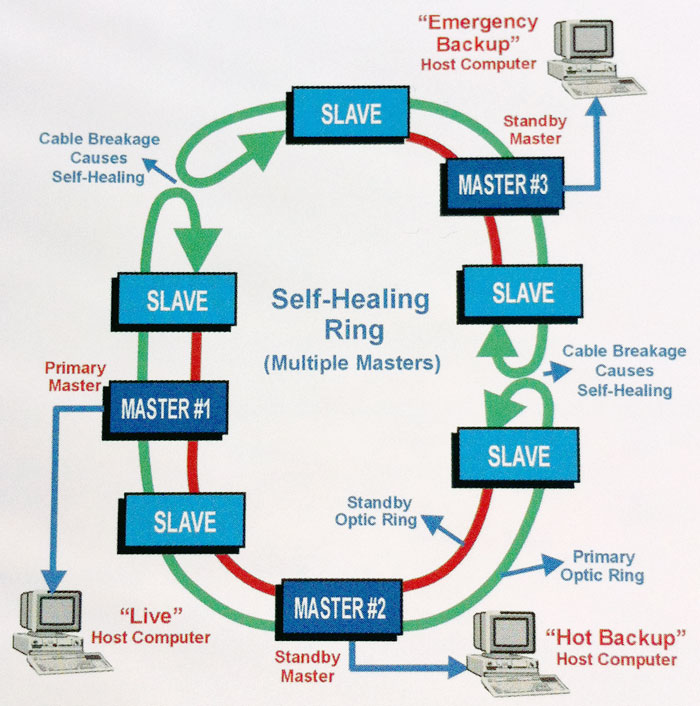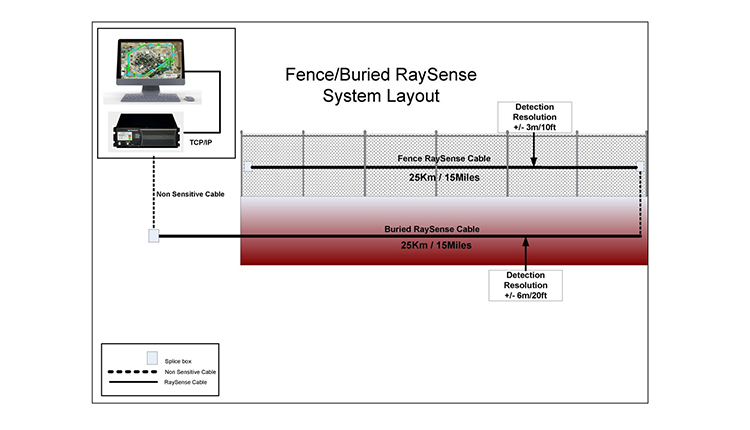Investing in a Fiber Optic Security System: Why It’s the Future of Secure Systems
The Ultimate Guide to Fiber Optic Safety And Security Solutions for Your Business
In a period where safety and security concerns are extremely important for organizations, comprehending the intricacies of fiber optic innovation can be transformative. This guide lays out exactly how integrating fiber optic safety systems not only boosts data defense but likewise offers benefits like resistance to interference and real-time surveillance capacities.
Comprehending Fiber Optic Technology

The core of a fiber optic wire is composed of a thin glass or plastic facility, surrounded by a cladding layer that shows light back right into the core. Single-mode fibers are developed for long-distance transmission, while multi-mode fibers are suitable for shorter ranges, usually made use of within structures.
Optical fiber are not only faster yet additionally more protected than typical circuitry. Their fundamental resistance to electro-magnetic interference and the difficulty of touching into the signal without discovery make them a recommended selection for businesses prioritizing information stability and protection. As organizations progressively count on secure and effective communication systems, comprehending fiber optic modern technology ends up being essential for notified decision-making.
Key Advantages of Fiber Optic Security
When taking into consideration protection alternatives for a business, the advantages of fiber optic systems are particularly compelling. Fiber optic modern technology supplies phenomenal data transmission speeds and data transfer capability, making it optimal for handling high-resolution video feeds from security electronic cameras. This ability ensures that protection employees get real-time data, improving total action times to potential security hazards.
Furthermore, fiber optic cables are naturally immune to electromagnetic interference, which can compromise the honesty of standard copper-based systems. This resistance guarantees that the data transferred continues to be protected and uninterrupted, giving a much more trusted safety facilities. In addition, fiber optics are much less prone to physical damage, as they are made from glass instead of steel, lowering upkeep expenses and downtime.
Another considerable benefit is the enhanced scalability of fiber optic systems. As business requirements evolve, fiber networks can be quickly broadened to fit additional safety tools without considerable overhauls to the existing infrastructure. Fiber optic systems provide boosted cybersecurity features, including file encryption capacities that safeguard sensitive data from unapproved access. Jointly, these advantages make fiber optic protection systems a durable choice for businesses seeking to improve their safety and security actions.
Setup Refine and Factors To Consider
Thinking about the intricacies included, the installation process of fiber optic safety and security systems needs careful planning and execution. The preliminary step involves a thorough website analysis to recognize ideal areas for cabling and tools. This analysis must consider environmental elements, existing facilities, and potential vulnerabilities.

Additionally, the installment has to adhere to local building regulations and industry requirements. This might consist of coordinating with various stakeholders such as structure supervisors, IT groups, and protection employees to make sure seamless assimilation with existing systems.
Post-installation, rigorous screening is essential to confirm system performance and recognize any type of problems that might occur. By prioritizing these factors to consider during the installation procedure, organizations can make sure a robust and reliable fiber optic safety system that satisfies their specific protection demands.
Newest Developments in Fiber Optic Protection
Recent advancements in fiber optic modern technology have Discover More significantly improved the capabilities of protection systems for companies. Among the most notable technologies is the assimilation of fiber optic sensing units that can find vibrations and intrusions along the border of a center. These sensing units supply real-time tracking, making it possible for rapid reaction to prospective violations.
Additionally, the growth of dispersed fiber optic sensing modern technology permits the constant surveillance of large locations with a single fiber cord. This method not only minimizes installment prices but also enhances the integrity of keeping track of systems by eliminating the requirement for numerous, different sensing units.
Additionally, innovations in multiplexing strategies have actually enabled companies to send vast amounts of data over fiber optic networks, improving the capacities of video clip surveillance systems. High-definition video clip feeds can currently be sent over cross countries without loss of quality, making certain that safety employees have accessibility to clear and workable details.
Last but not least, making use of expert system (AI) combined with fiber optic systems is revolutionizing risk detection. AI algorithms can examine information from fiber optic networks to recognize uncommon patterns or habits, permitting aggressive safety actions. These innovations collectively stand for a significant leap ahead in fiber optic safety innovation.
Selecting the Right System for Your Service
Picking the suitable fiber optic safety system for your company is vital for making sure optimum security and assurance. To make an enlightened option, examine your particular safety and security requirements, thinking about factors such as the size of More hints your properties, the nature of your operations, and potential susceptabilities.
Begin by assessing the level of safety and security required; for example, fiber optic security system risky settings may demand innovative systems with incorporated surveillance and breach detection capabilities. Next, consider scalability; as your business expands, your safety and security system need to be qualified of broadening to fit increased needs without significant overhauls.
Additionally, check out the integrity and efficiency of various systems. Search for companies with well-known credibilities and client testimonies that confirm to their solution top quality. It's also recommended to ask about the modern technology's compatibility with existing infrastructure, ensuring a seamless integration process.
Final Thought
In final thought, fiber optic safety and security systems present a robust remedy for boosting company security frameworks. The most recent advancements further strengthen the efficiency of these systems, ensuring that companies remain safe and adaptable in an ever-evolving hazard landscape.